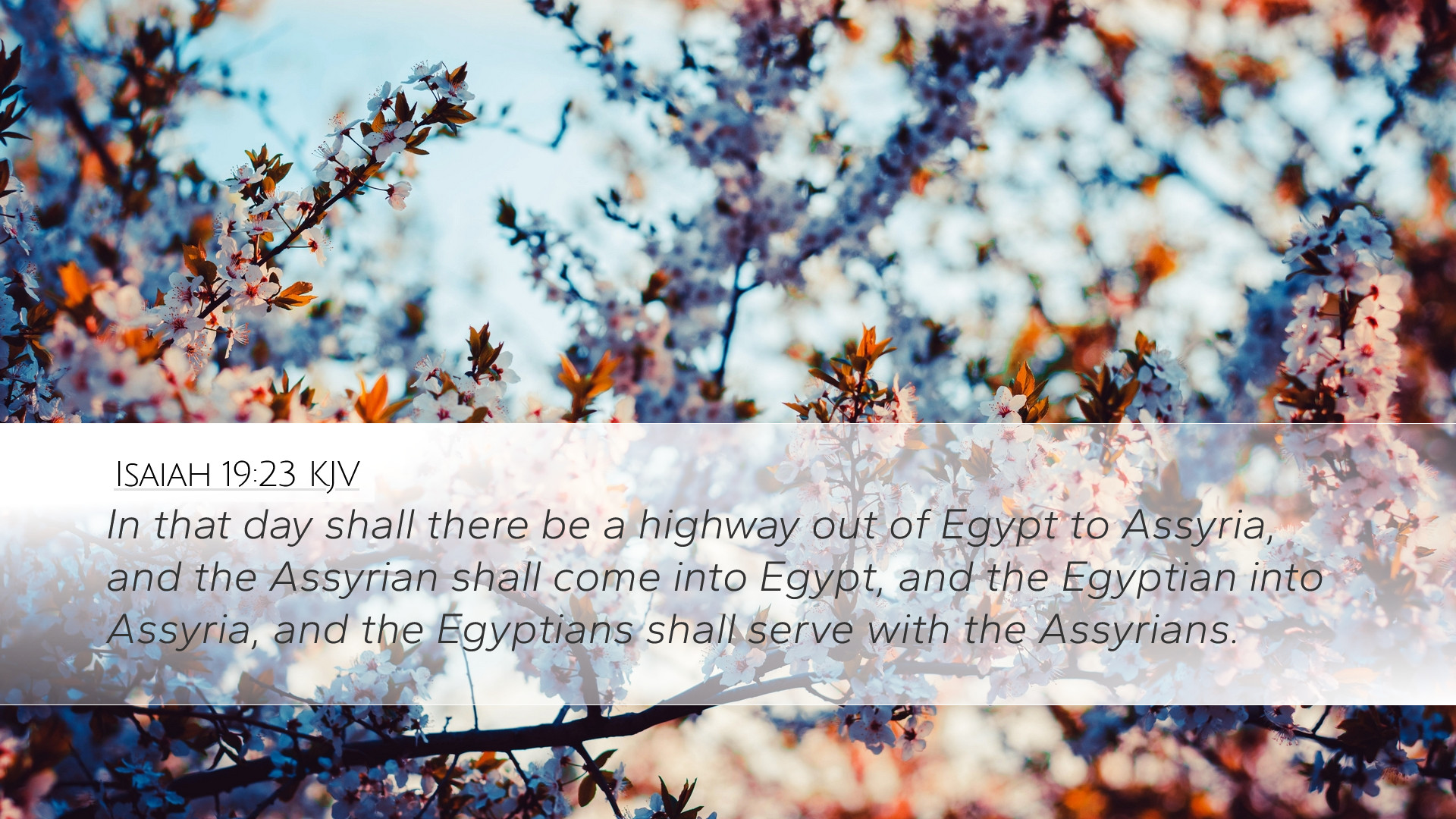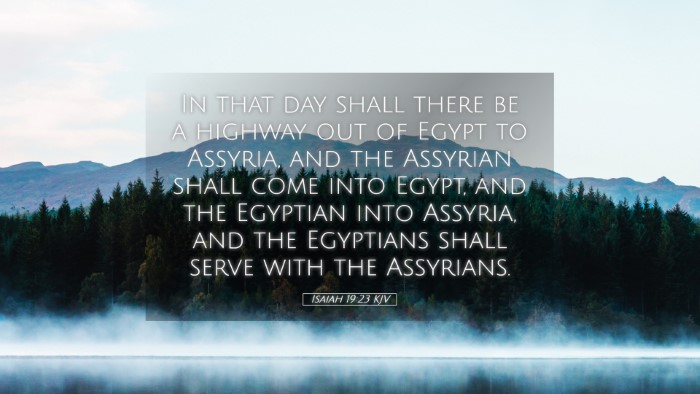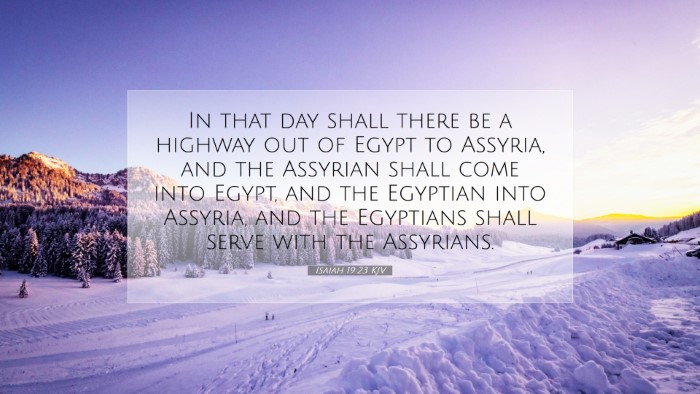Commentary on Isaiah 19:23
Isaiah 19:23 reads:
"In that day there shall be a highway out of Egypt to Assyria, and the Assyrian shall come into Egypt, and the Egyptian into Assyria, and the Egyptians shall serve with the Assyrians."
Contextual Overview
The context of Isaiah 19:23 is pivotal for understanding its significance. This verse appears within a prophecy concerning Egypt and its neighboring nations, particularly Assyria. Isaiah prophesies about a future time when the enmities that currently divide these nations will be resolved, and peace will reign.
Thematic Analysis
-
Unity and Peace:
This passage highlights a profound theme of unity among historically adversarial nations. Matthew Henry notes that the "highway" signifies a path not only for trade but for fellowship and mutual respect, depicting a future where hostility is replaced by harmony.
-
Divine Intervention:
Albert Barnes emphasizes that this transformation is the result of divine intervention, where God orchestrates the circumstances leading to peace among the nations. This reflects the larger biblical theme wherein God brings disparate groups into a place of reconciliation.
-
The Role of Servitude:
Adam Clarke posits that the mention of "serving" indicates the proper acknowledgment of one another’s sovereignty in a non-oppressive manner. It illustrates a consensual relationship between nations that previously experienced conflict and enmity.
Spiritual Insights
Beyond the political implications, Isaiah 19:23 can be explored for its spiritual insights for the modern believer:
-
Hope for Reconciliation:
For pastors and theologians, this passage serves as a strong reminder that no division is beyond the power of God to reconcile. The text encourages believers to pray for peace and to actively work towards unity in their communities.
-
Global Citizenship:
This verse foreshadows a universal kinship among all nations. It underscores the calling of the Church to view all people as created in God’s image, deserving of dignity and respect, thus transcending cultural and geographical boundaries.
Historical Context
Understanding the historical backdrop of the nations involved provides further depth to the commentary:
-
The Relationship Between Egypt and Assyria:
Historically, Egypt and Assyria were powerful kingdoms in the ancient Near East. Their histories are marked by conflict, yet Isaiah’s prophecy anticipates a future where these nations will work together for mutual benefit. This speaks to God's ability to change hearts and redirect national ambitions.
-
Prophetic Fulfillment:
Many biblical scholars believe that Isaiah's prophecy has both an immediate historical application and a far-reaching eschatological implication, suggesting that such conditions will ultimately be realized in the Messianic age referred to in the New Testament.
Theological Considerations
-
Sovereignty of God:
This verse illustrates God’s sovereignty over the affairs of nations—a reassurance for believers that despite chaos, God is in control and has a plan for humanity that transcends historical animosities.
-
Fulfillment in Christ:
Isaiah 19:23 not only points to the ancient kingdoms but also finds its ultimate fulfillment in Christ, where all nations are invited into a reconciled relationship through His sacrificial work on the cross.
Application for Today
For contemporary readers, this passage invites reflection and action in several critical areas:
-
Bridging Divides:
Church leaders are called to explore ways to bridge modern-day divides—racial, cultural, and socio-economic—reflecting the unity that Isaiah anticipates.
-
Mission Work:
This verse challenges mission-oriented Christians to consider the interconnectedness of nations, urging them to participate in God’s redemptive work across different cultures.
Conclusion
Isaiah 19:23 is a profound reminder of hope and reconciliation, challenging both ancient and modern believers to participate in God's vision for unity among nations. Its layered meanings yield rich insights for pastors, students, and scholars alike, encouraging a proactive stance in the pursuit of peace, mutual respect, and understanding among all people.


